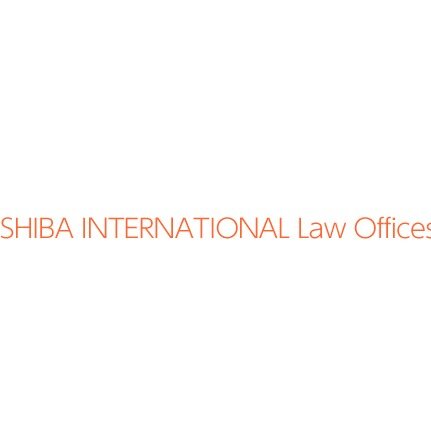Best Bankruptcy Lawyers in Japan
Share your needs with us, get contacted by law firms.
Free. Takes 2 min.
Or refine your search by selecting a city:
List of the best lawyers in Japan
About Bankruptcy Law in Japan
Bankruptcy in Japan is governed by comprehensive laws designed to provide relief to individuals and businesses struggling with insurmountable debt. The main types of legal proceedings related to insolvency in Japan include personal bankruptcy (kojinteki hasanshi), corporate reorganization (kaisha kosei), and special liquidations (tokubetsu seisan). These laws are intended to provide a structured process for debt resolution while ensuring the protection of creditors' rights as much as possible. The procedures provide different paths for debt discharge and restructuring, ensuring that both debtors can make a fresh start and creditors can recover a portion of the owed debt.
Why You May Need a Lawyer
Seeking legal advice in bankruptcy is often necessary because the process can be complex, requiring a clear understanding of legal rights and obligations. Common situations where people may require legal help include:
- Facing overwhelming debts that exceed your ability to pay.
- Dealing with aggressive collection efforts by creditors.
- Wanting to protect certain assets from liquidation.
- Need to restructure business debts to avoid closure.
- Unclear understanding of eligibility for bankruptcy filing.
- Concerns about potential impacts on your personal or business credit rating.
- Need to negotiate with creditors on new repayment terms.
- Advising on the implications of bankruptcy on tax liabilities.
Given the potential for serious legal and financial consequences, consulting a legal expert who specializes in bankruptcy can help you make informed decisions and proceed through the process more smoothly.
Local Laws Overview
Japanese bankruptcy law primarily deals with two main areas: insolvency proceedings and debt rehabilitation. Key aspects of the local laws relevant to bankruptcy in Japan include:
- Personal Bankruptcy: This involves filing under processes designed for individuals, where the court assesses the debtor's financial status and decides on discharging eligible debts.
- Corporate Reorganization: This provides a framework for restructuring the debts of a company, allowing it to continue operations while repaying creditors over time.
- Consul Altan: Specific guidelines and stages that must be adhered to, including filing petitions, court proceedings, and creditors' meetings.
- Voluntary Arrangements: These allow debtors and creditors to reach a voluntary resolution outside of formal bankruptcy courts.
- Special Liquidations: A faster, more flexible alternative to corporate liquidation, applicable in specific scenarios.
Japan's legal framework ensures that the interests of both creditors and debtors are balanced, providing mechanisms for financial rehabilitation and protection from excessive creditor intervention once proceedings have commenced.
Frequently Asked Questions
1. What are the main types of bankruptcy procedures available in Japan?
In Japan, the primary types of bankruptcy procedures include personal bankruptcy, corporate reorganization, and special liquidation.
2. Can foreign nationals file for bankruptcy in Japan?
Yes, foreign nationals residing or having a business presence in Japan can file for bankruptcy under the same conditions as Japanese nationals.
3. What are the assets exempted from bankruptcy proceedings?
Certain personal assets are exempt from bankruptcy, including necessary clothing, household goods, and living expenses, to allow for a basic standard of living.
4. How does bankruptcy affect my credit score in Japan?
Bankruptcy negatively affects your credit score and remains on your credit history for several years, impacting your ability to obtain loans and credit.
5. How long does the bankruptcy process take?
The duration varies based on the type and complexity of the case. Personal bankruptcy can take several months, while corporate reorganization might extend longer.
6. What is the role of a trustee in bankruptcy proceedings?
A trustee is appointed to manage the debtor's estate, including liquidating assets and distributing proceeds to creditors, and ensuring adherence to bankruptcy laws.
7. Are all debts discharged in a bankruptcy procedure?
Not all debts are dischargeable. Certain obligations, such as child support, alimony, and certain taxes, may still need to be paid post-bankruptcy.
8. Can I choose which creditors to include in my bankruptcy filing?
All creditors must be included in a bankruptcy filing; selective inclusion of creditors is not permissible.
9. Is it possible to appeal if a bankruptcy filing is rejected?
Yes, debtors can appeal a bankruptcy filing rejection, but they must provide valid grounds and often require legal assistance to navigate this process.
10. What are common alternatives to filing for bankruptcy?
Alternatives include negotiating with creditors for a payment plan, applying for a debt consolidation loan, or seeking financial counseling to manage debts independently.
Additional Resources
For further assistance, consider reaching out to the following resources:
- Japan Legal Support Center (Houterasu): Offers legal consultation and services, including advice on bankruptcy cases.
- Local Bar Associations: Can provide listings of qualified bankruptcy attorneys in your area.
- Financial Services Agency of Japan: Provides guides and regulations on financial and insolvency issues.
- Consumer Affairs Center: Offers guidance on financial issues and consumer rights.
Next Steps
If you find yourself requiring legal assistance for bankruptcy in Japan, consider taking the following steps:
- Gather all relevant financial documents, including income statements, debt records, and asset details.
- Research and meet with qualified bankruptcy attorneys to discuss your situation and explore legal options.
- Consult government and non-profit agencies for initial guidance and additional resources.
- Understand the potential implications of bankruptcy on your personal and business finances before proceeding.
By taking informed actions and seeking professional legal support, you can navigate through the complexities of bankruptcy proceedings more efficiently.
Lawzana helps you find the best lawyers and law firms in Japan through a curated and pre-screened list of qualified legal professionals. Our platform offers rankings and detailed profiles of attorneys and law firms, allowing you to compare based on practice areas, including Bankruptcy, experience, and client feedback.
Each profile includes a description of the firm's areas of practice, client reviews, team members and partners, year of establishment, spoken languages, office locations, contact information, social media presence, and any published articles or resources. Most firms on our platform speak English and are experienced in both local and international legal matters.
Get a quote from top-rated law firms in Japan — quickly, securely, and without unnecessary hassle.
Disclaimer:
The information provided on this page is for general informational purposes only and does not constitute legal advice. While we strive to ensure the accuracy and relevance of the content, legal information may change over time, and interpretations of the law can vary. You should always consult with a qualified legal professional for advice specific to your situation.
We disclaim all liability for actions taken or not taken based on the content of this page. If you believe any information is incorrect or outdated, please contact us, and we will review and update it where appropriate.
Browse bankruptcy law firms by city in Japan
Refine your search by selecting a city.
















